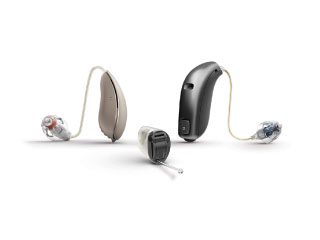
Jan 24, 2019
If you’ve ever thought about purchasing a hearing instrument through the mail or online, consider this: Today’s selection procedures utilize computers, which factor in hearing test results, loud sound tolerance, and multiple listening environments. The computer then...

Jan 17, 2019
For people over age 70 who have “clinically meaningful hearing loss,” proper fitting with a hearing instrument can not only improve their ability to hear the television and radio, but it can also significantly improve their social interaction with family and...

Jan 10, 2019
In recent years, health professionals have advocated that we do all we can to eat foods that promote the health of the cardiovascular system. Now, it seems we all have even more reason to embrace heart-healthy diets. According to a recent analysis of 81,000 women in...

Jan 3, 2019
Surveys indicate that seniors are more afraid of developing dementia, which includes Alzheimer’s disease, than they are fearful of getting cancer, heart disease, or a stroke. This fear of dementia is predicated on worries about losing independence and becoming a...

Dec 27, 2018
When it comes to the selection of a hearing instrument, it is generally true that bigger is more powerful. While individuals with mild-to-moderate hearing loss will most likely find that in-the-canal instruments can adequately meet their needs, those with...

Oct 16, 2018
While two out of three people have some degree of hearing loss by the time they reach age 65, many feel it isn’t severe enough to interfere with their daily lives. They therefore simply endure their hearing deficit, figuring that the worst that can happen is that they...








